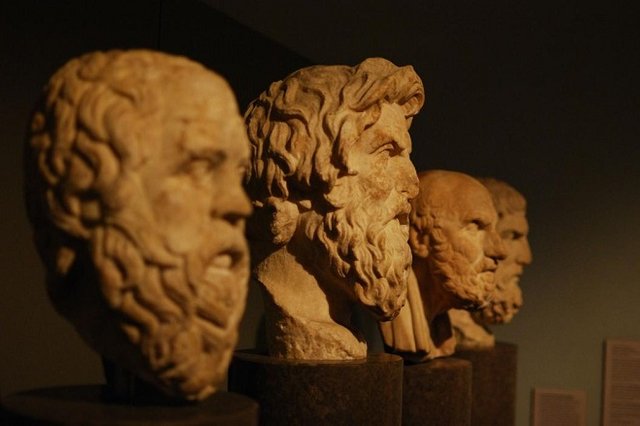If the essence of philosophy and religion is properly understood, it will be clear that there is no contradiction in this case. The philosophy of its intention and nature is rational knowledge, but already, in order for it to exist itself, it must have some meaning, to be a kind of goddess. There is work, however, that acceptance of the public sense can be done by faith through religion, not through philosophy and reason. That is why the great German philosopher and poet Goethe says: "Being is not divided into the human mind without remnant." In this respect, the materialist who calls himself a godless man makes no exception. He may theoretically deny the existence of purpose or meaning in the world, but he can not live by this doctrine. In fact, in spite of his doctrine, he believes in the reasonable wisdom of things, he believes in the assertion of reason over unreasoning, he believes in the truth, righteousness and peace of lies, injustice and war, he believes in other words in the meaningful setting of the world faith can never be philosophically justified-it is always of a religious nature.
The philosophical doctrine of God is always the subject of controversy among religious thinkers, with Christian theology unambiguously referring to the possibilities of rational knowledge of God. In the Confessively Varied Christian World, there have always been conceptual orientations that God knows by reason is perceived as an essential obstacle on the path of God's knowledge. This God opposes God, who is known by faith. That is why Blaze Pascal distinguishes "the God of Abraham, Isaac, and Jacob, from the God of philosophers and scholars." Soren Kierkegor follows another path where reason leads to despair and despair - to the faith. Leo Shestov opposes biblical righteous Job to the Socrates philosopher, and Carl Bart has seen in the God of the philosophers a projection of human reason, a kind of superior intellectual idol. However, the main problem can be put in another way. Has the philosophy ever led the man to God or how far it could bring him closer to the God-willed truth. A similar pattern seems artificial, but turning to God is always the work of man as a whole. Historically, man exists in the world of good and grace, but also of sin, and the real deeds of man are not the end result of the theoretical-cognitive abilities of reason alone.
What is the status of philosophy in the theological perspective? In the problem of the various types of theology, there is a finding that there is good and bad use of philosophy, that there is a wrongly constituted God of philosophers, and a true philosophy of God. Exploring the way that philosophy goes into knowing God creates another problem. Is its status legitimate in this context because it is precisely this fact that is questionable. This competence is being challenged on many different grounds. One point is that the intellect damaged by the original sin is incapable of reaching the truth. The second - since God is superhuman, beyond the limits of human reason, every claim of this reason, in order to know God's essence, is inevitably illusory. The third, without understanding the nature of the contradictions in philosophical systems and teachings, concludes that it is dangerous to give faith to God in the power of their thought constructs. The intellect, trained with the scientific methods of the science of exaction, naturally comes to perplexity when it does not find metaphysics in its own criteria of credibility and often seeks refuge in religious experience. It is even more righteous to note that the living God can not be comprehended and defined by reason. God, who would be a rational path that is fully probable and achievable to man, would no longer be a true God.

I believe in the God of Revelation, and not the God of reason, as the Greeks suggested. God is faith the conviction of what one can not see the certainty of what is expected
Downvoting a post can decrease pending rewards and make it less visible. Common reasons:
Submit
nice
Downvoting a post can decrease pending rewards and make it less visible. Common reasons:
Submit
Upvoted.
DISCLAIMER: Your post is upvoted based on curation algorithm configured to find good articles e.g. stories, arts, photography, health, etc. This is to reward you (authors) for sharing good content using the Steem platform especially newbies.
If you're a dolphin or whales, and wish not to be included in future selection, please let me know so I can exclude your account. And if you find the upvoted post is inappropriate, FLAG if you must. This will help a better selection of post.
Keep steeming good content.
@Yehey
Posted using https://Steeming.com condenser site.
Downvoting a post can decrease pending rewards and make it less visible. Common reasons:
Submit